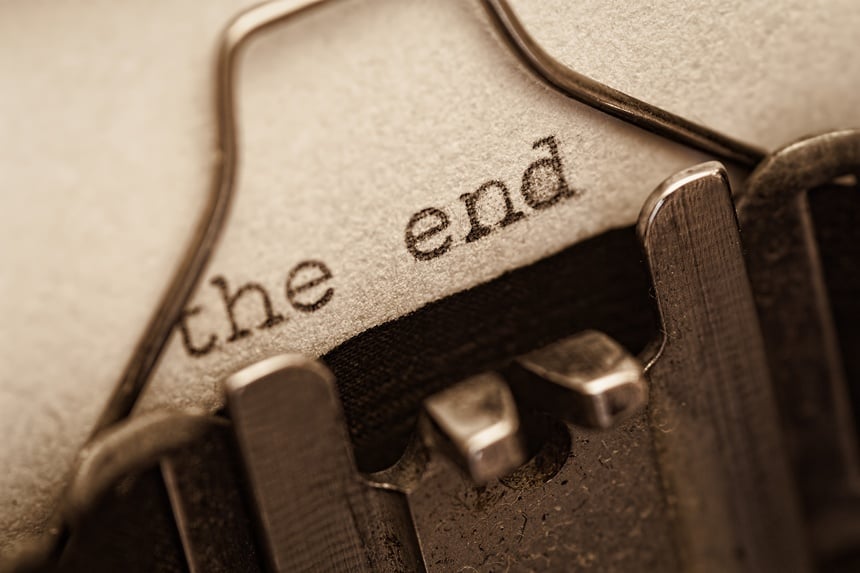The beloved author and journalist Joan Didion started therapy in 1999. She kept a journal about that experience and the process of coping with her personal dilemmas and losses. On April 22, 2025 — more than three years after Didion’s death — Alfred A. Knopf published selections from those journals in the book Notes to John, sparking a massive debate about the ethics of posthumous publication, particularly of private writings like journals, letters, and diaries.
Many came to the defense of Notes to John; some praised the book for showing Didion in a new light, and others argued that, as someone who knew the publishing industry inside and out, she would not have left her diary behind if she did not want it to be read by others. Those who opposed the publication, however, argued that Notes to John disrespected Didion’s privacy, because even though she wrote about her personal experiences in pieces she published during her lifetime, she also chose to keep certain aspects of her life private.
In 1998, Didion’s essay “Last Words” was published in The New Yorker. In it, she analyzed Ernest Hemingway’s intentionality with every word of his craft and his specific editing process, arguing that publishing Islands in the Stream and Garden of Eden posthumously was unethical because Hemingway himself did not want those incomplete novels to be published. Didion wrote: “You think something is in shape to be published or you don’t, and Hemingway didn’t.” If she disagreed with the posthumous publication of Hemingway’s fictional works, one can infer that she would also disagree with the publication of her own intimate journal entries, even if she had not exclusively asked someone to destroy them.
This isn’t the first time the book world has faced this ethical dilemma.
Sylvia Plath’s husband, Ted Hughes, published her diaries years after her suicide. In those journals, Plath privately writes about her spiraling mental health and her longing to be understood in the conformist 1950s society that limited and ignored her. Over the past few years, Plath’s private, unabridged writings, in which she is deeply personal and raw, have become increasingly popular, and many consider her entries “relatable.” Some argue that, when studying Plath’s poetry and her semi-autobiographical novel, The Bell Jar, her diaries serve as a resource to better understand her work. However, just because Plath incorporated her own experiences into her fictional work, does that automatically make the publication of her private writings ethical?
In contrast to Didion, Hemingway, and Plath, who left no direct instructions about what to do with the work they left behind, some writers did let their wishes be known — but were disobeyed. Vladimir Nabokov, for example, instructed his wife, Véra Nabokov, to burn his unfinished and unpublished writings after his death. Yet, many of these works, including letters, poems, and novels, were published in the 40 years following his death in 1977, including The Enchanter and The Original of Laura. The latter novel was published as a collection of fragments of an unfinished story written on index cards. His son, Dimitri Nabokov, who published and translated these novels, stated that he was conflicted between disobeying his father’s wishes and becoming a “literary arsonist.”
Nabokov’s son wasn’t the only person who had to choose between an author’s wish and literature as a whole. Franz Kafka owes a significant portion of his legacy to two novels published after his death and against his wishes. Kafka wrote to his close friend and editor, Max Brod, that “everything I leave behind me… in the way of diaries, manuscripts, letters (my own and others’), sketches and so on, to be burned unread.” Yet Brod published two of Kafka’s incomplete novels, The Castle and The Trial. These novels are now considered two of the greatest works of the 20th century, making it difficult to imagine a world in which Kafka’s dying wishes should have been respected.
But in certain cases, incomplete works published after a writer’s death end up harming their reputation, which adds another layer of moral complexity to the publication of posthumous fictional works.
The Last Tycoon by F. Scott Fitzgerald was published a year after his death and is considered by many to be his weakest novel, but is that a fair characterization? In “Last Words,” Didion recalls a Berkeley dinner party in which her professor used The Last Tycoon to “prove” Fitzgerald’s lack of writing talent. Didion responded that the novel “was an unfinished book, one we had no way of judging because we had no way of knowing how Fitzgerald might have finished it.” Novel writing involves a great deal of rewriting, editing, and polishing, which Fitzgerald did not have the opportunity to do. One cannot know what The Last Tycoon could have been based simply on Fitzgerald’s notes and outlines.
There is also the argument that a writer’s perfectionism could lead to the destruction of a great piece of literature. For example, Nabokov was incredibly controlling, editing his prose down to every word, scripting his interviews, and even attempting to incinerate his most acclaimed novel, Lolita. A young, undiscovered Stephen King threw away the first few pages of Carrie and only finished the novel because his wife, Tabitha King, rescued them from the trash and encouraged him to finish the story. Carrie ended up becoming King’s debut novel and a massive success.
Not all works originally abandoned by their author were rescued. Nikolai Gogol, for example, burned the second part of Dead Souls due to self-doubt; we’ll never know if that second part would have further solidified the book as a Russian literature classic or if it would have impacted the story negatively. If these writers were solely in charge of whether their work was published or destroyed, many great novels wouldn’t exist, which would be a great detriment to both the writer’s legacy and literature. Unpublished or incomplete fiction that a creator leaves behind might still deserve to be read and studied.
Like so many ethical questions, there are no simple answers. Is publishing unfinished fiction fundamentally different from publishing personal writings? Novels are often written with the goal of publication, whereas private writings such as diaries and letters are not, but should that even be a consideration if an author states plainly that they do not want their unpublished works to go into print?
Lastly, should one favor an individual author’s wishes over literature as a whole, even when they are no longer present? If one chooses to respect a writer’s wishes or privacy, literature and the next generations of writers and readers could conceivably experience a weaker canon, but if a writer did not have faith in the quality of their work, perhaps literature would be better off without it. This is a dilemma that Dimitri Nabokov, Max Brod, and every other person who had control over these writers’ works faced, and while it appears that most chose literature, one can never know how many unknown manuscripts died alongside their writers.
Become a Saturday Evening Post member and enjoy unlimited access. Subscribe now




Comments
Thank you for this thoughtful article. I strongly agree with Joan Didion’s perspective and warmly disagree with your framing of the matter as the individual’s wishes vs. the good of literature. While I do agree there are situations of nuance in interpreting ambiguity of an author’s stated wishes (or lack there of), on the whole, this is a matter of honoring consent regardless of whether the author is living or not. Whether the person is an author, or was some other position in this life is not the point. Every person deserves to have their wishes respected. Period.
I disagree with the assessment made on Fitzgerald’s “Last Tycoon.” I have read, studied, and consider it his best right after “Gatsby” and “Tender is the Night.” The story was painted well enough before his passing that you had a pretty good idea where it was leading. Anyone who says otherwise has never fully studied the book or read it in depth.
I was so immersed and triggered, that I forgot to say,
“Good article … Critical topic!”
Heh.
I do not find it difficult at all imagining a world without the novels The Castle and The Trial. Kaka’s wishes should have been obeyed. Anything else isn’t justifiable. I care not one matchstick if his work secretly included a cure for multiple types of cancer.
The ONE outweighs the MANY.
“Duh,” said Captain Kirk.
If society doesn’t honor such a fundamental RIGHT to an author to WITHHOLD ONE’S OWN WORDS from INVASIVE THEFT, then that society is worth little more than spit, and is a Kafkaesque hypocritical JOKE ….. A fun house mirror of accepted levels of distortion.
See what I did there?
(spit)
(Bringing up Big Stevie was quite the stretch via laterally bringing up an author’s standards. It doesn’t matter if the deceased author was a perfectionist (or not) in the posthumous arena in which many authors’ ghosts will do battle. It is irrelevant.
BUT, on a related topic, since you brought him up … everyone knows King has things up his sleeve at the ready when he departs, prefaced with: “Dear Constant Reader, if you’re reading this, we both know what that means. And don’t be so smug. You will be following me soon enough. This I can guarantee.”)
I detest parasitic publishers and opportunists.
Sociopathic scum.
This article poses moral questions, and ethical/unethical ones as well of the person’s wishes regarding unfinished/unpublished works being published posthumously. I find myself in agreement with Joan Didion’s opinions and viewpoints on this subject, for her reasons given.
The waters can become murkier if the reader is given the impression (or open to interpretation) that what the writer wrote was somehow autobiographical when it wasn’t, and this was why they did not want it published. An author may mix fiction with non-fiction, such as a character being a composite of a few people blended into one as an example.
‘The Last Tycoon’ logically would have been was Fitzgerald’s “weakest novel” precisely because he was nearing the end which is why it wasn’t completed, and therefore not up to his usual standards as Joan pointed out to her professor at the Berkeley dinner party. We don’t know how it would have turned out, per her reasons mentioned!
Unfortunately, greed to make money off a deceased author’s work can easily come into play, and AI interpretation (if incomplete) of what IT thinks the author would have said and done, erroneous or not, would wind up having the last word because that’s what wound up on the printed page. Completed works can have different problems, but probably with some crossover too.